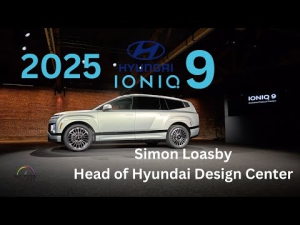Not Iconic: The Lackluster Hyundai Ioniq Electric Gets Cut
Many automakers have started to move toward mass EV production, and Hyundai joined in on the fun with the Ioniq. Hyundai debuted the Ioniq in 2016, and it was a triple threat as customers could choose from the standard Ioniq hybrid, the Ioniq Plug-In Hybrid, or the Ioniq Electric. Unfortunately, this wasn’t totally successful, as Hyundai has decided to discontinue the Ioniq Electric.
Hyundai has won a lot recently, but not with the Ioniq Electric
Many Hyundai models have won awards over the past several months, and those vehicles have also been selling quite well. For example, the Hyundai Palisade is arguably one of the best SUVs available right now. Additionally, Hyundai’s sister company, Kia, can’t seem to lose either. The Kia Telluride has received much praise, and its sales figures have also been quite remarkable.
Similarly, the Hyundai Ioniq has received a lot of accolades. To be clear, some Ioniq models have received praise, while others haven’t. The standard Ioniq hybrid has received quite a few awards, and the Ioniq PHEV is in a similar boat. However, that’s not the case with the Ioniq EV. The Ioniq Electric, simply put, is the black sheep of the Ioniq family. That’s why it isn’t surprising that Hyundai recently canceled the Ioniq Electric, according to Autotrader.
Why the Hyundai Ioniq Electric failed
At a starting price tag of about $34,000, the Ioniq Electric is a more affordable EV option for customers. However, customers didn’t see much value in the Ioniq Electric, even at that price point. This is because the Hyundai EV only has a 38.3 kWh battery, and that small battery doesn’t provide much range for the Ioniq Electric. It gets about 170 miles on a full charge at best, and that’s less range than many of its competitors.
The Ioniq Electric also doesn’t have much else going for it. It’s not a fast car, it doesn’t have great handling, and it doesn’t provide passengers with a comfortable ride. Its interior tech features are pretty good, but that’s not saying much because many other EVs have good tech features. However, what probably sunk the Ioniq Electric was the fact that one of Hyundai’s smaller EVs, the Kona Electric, is just a better EV in many ways.
The Kona Electric, which is a subcompact crossover, is bigger than the Ioniq Electric in more ways than one. Not only is it more spacious, but its batteries allow it to get 258 miles on a single charge, according to Autotrader. The Kona Electric costs about $4,000 more than the Ioniq Electric, but it’s what Hyundai is betting Americans will want instead of the Ioniq Electric.
The future of the Ioniq brand
Since the Ioniq hybrid models continue to do well, Hyundai will probably continue to improve them soon. Furthermore, the Ioniq brand is getting more EVs, but they won’t be the same as the Ioniq Electric that was killed off. Soon, Americans will have the option to buy an Ioniq 5, and instead of being a sedan, it’s a compact crossover EV.
Similarly, Kia will soon be offering the EV6, which will have many similarities with the Ioniq 5. Since the Ioniq 5 is a much bigger car than both the Ioniq Electric and the Kona Electric, it may end up being more popular than either of them. The Ioniq 5 will have about 59.3 cubic feet of cargo space, and it’ll get 300 miles on a single charge. That said, it’s currently unknown how much the Ioniq 5 will cost.
RELATED: Does the 2022 Hyundai Ioniq 5 EV Really Have a 300-Mile Range?
The post Not Iconic: The Lackluster Hyundai Ioniq Electric Gets Cut appeared first on MotorBiscuit.







